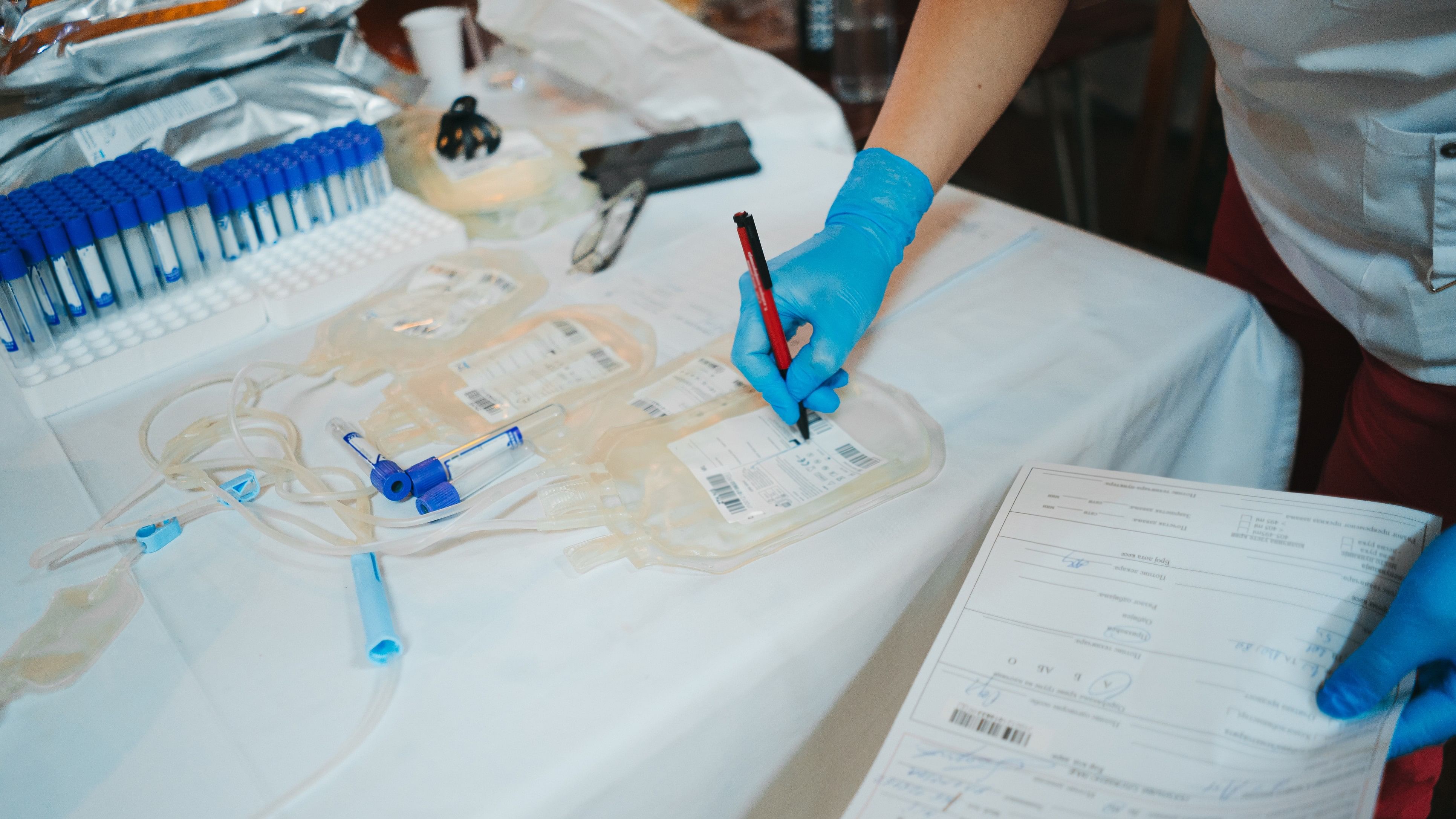
Drugs Controller General of India (DCGI) took a decision to streamline charges at blood banks pan-India.
Credit: iStock Photo
Mumbai: The Mumbai-based People’s Health Organisation (PHO) has welcomed the decision by the Drugs Controller General of India (DCGI) to streamline charges at blood banks pan-India. PHO has urged the Central government to strictly ban the trade of blood and organs.
PHO's Secretary General, Dr Ishwar Gilada, emphasised on making it a punishable crime. He said, "It is necessary to provide guidelines to blood banks, hospitals and doctors on blood/organ safety, make cadaver transplants feasible and realistic and review blood testing guidelines from time to time.
According to him, the DGCI ban is a positive step and will provide a great relief to patients in need of blood and its components like packed cells, plasma and platelets. "Overcharging for blood and fleecing gullible people by some blood banks in most parts of India has been a blot on the blood-banking services that are considered ‘life-saver’," Gilada said.
The PHO had been championing the fight against commercialisation of blood and had fought legal battles for blood safety since 1989 single-handedly and has been concerned with casualness of the official agencies like Food and Drug Administrations (FDA) and had filed public interest litigation (PIL) in the Bombay High Court for blood safety.
Furthermore, he said that most of the private blood banks, despite collecting blood supply from voluntary donors and through large blood donation drives attracting donors by en-cashing sympathy towards blood donation equated with donating life, charge a deposit ranging from Rs1,500 to 5,000- per unit of blood, expecting the patient to replace the blood within stipulated time limit.
“In case of failure to replace blood, the deposit is forfeited. This amounts to selling blood. This is over and above the blood processing fee of Rs1,700 to 3,500 per unit charged by the blood banks. The relatives sometimes try to bring commercial blood donors (blood sellers) to replace the blood," he said.
"The blood sellers charge Rs 500 to 1000 and it is cheaper than forfeiting the deposit. Patients feel harassed and get financially exploited, in addition to exposing themselves or others to nearly 22 transfusion-transmitted infections; most aren’t screened before transfusion,” he noted.
Dr Gilada revealed that in pre-transfusion mandatory testing only five infections are screened routinely – HIV, Hepatitis B Virus (HBV), Hepatitis C Virus (HCV), Syphilis and Malaria.
However, the donors aren’t even informed of their HIV, HBV or HCV positive or negative status. In fact, the HBV negative people should receive Hepatitis B vaccines, which are inexpensive.
Several VVIPs who have succumbed to HBV or gone through liver transplants as a consequence of HBV infection, which could have been spared and saved if vaccinated against HBV, he said.
"The other game of making money practiced by many small and big private hospitals is, requesting patients to reserve 2-3 units of blood of their respective group for surgery. The patient is billed if the blood is used from that hospital or asked to get the blood from any of the FDA registered blood banks. If blood is not used, it is neither returned to the patient nor is the deposited amount refunded, he said.
He added saying, "If one insists and fights, some blood banks issue a ‘Blood Unit credit voucher’, to be redeemed by the patient or his/her first relation in three months in that blood bank. The probability of using such a reserved blood is extremely rare."